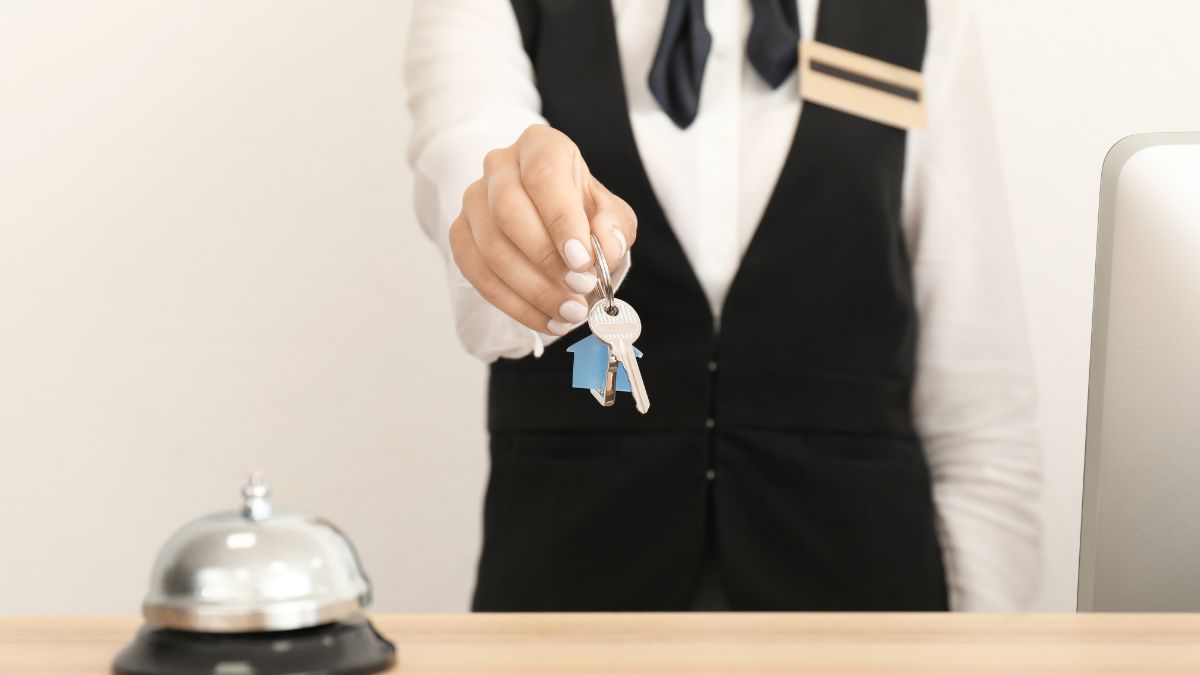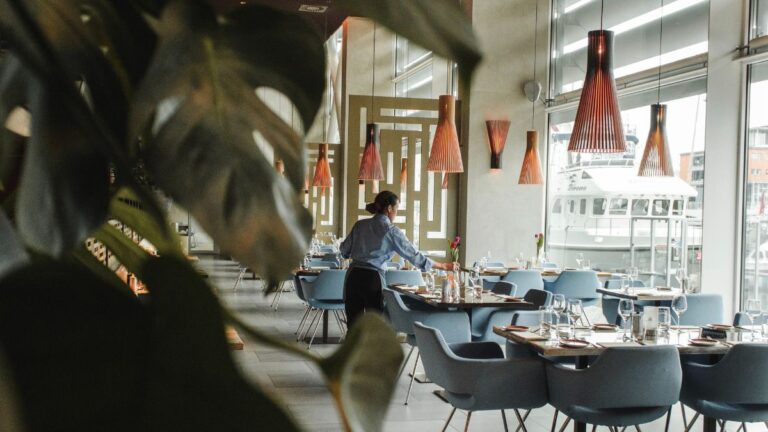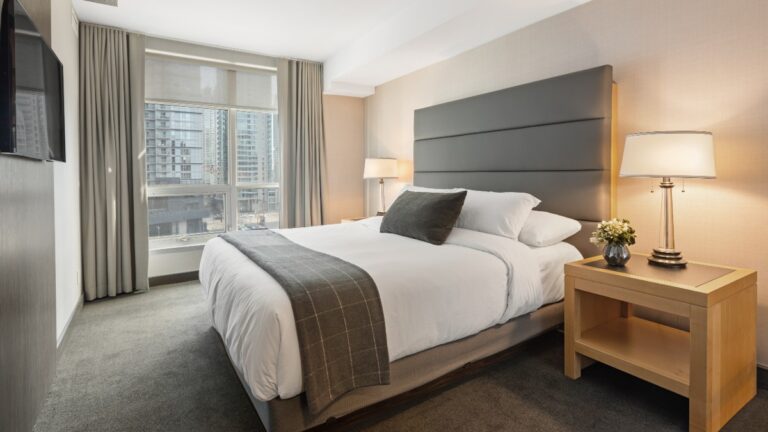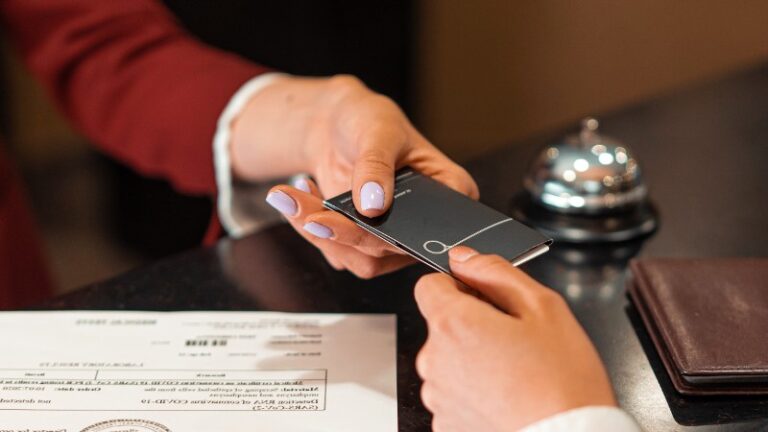Hourly Hotel Bookings: A New Trend in Short-Term Accommodations?

As participants in Amazon Associates and other programs, we earn from qualifying purchases. This comes at no additional cost to you. For more details, see our Affiliate Disclosure.
Back when I was constantly on the move for work, I often found myself wishing I could just rent a hotel room for a few hours to freshen up, rest, or catch up on emails. Little did I know, the concept was already catching on. Enter the trend of hourly hotel bookings, offering travelers a unique solution without the commitment of an overnight stay.
HIGHLIGHTS
- Hourly Hotel Bookings are emerging as a preferred choice for many travelers, providing flexibility and catering to diverse needs such as layovers, business meetings, and short breaks.
- Both guests and hotels benefit: Guests enjoy cost-effectiveness and adaptability, while hotels can boost their revenue and make efficient use of resources.
- Booking an Hourly Room is simplified with specialized platforms like ByHours and Dayuse, though directly contacting hotels and reading reviews remain essential steps.
The Rise of Hourly Hotel Bookings
The concept of hourly hotel bookings isn’t entirely new, but its popularity has soared in recent years. As our lives have become busier and more unpredictable, our travel and accommodation needs have shifted. Many travelers, including myself at one point, have faced situations where a full night’s stay just wasn’t necessary. Whether it was a layover between flights, a few hours to rest during a long road trip, or just a private space for an important virtual meeting, these needs gave rise to the trend.
Hotels, always keen on maximizing occupancy and revenue, quickly caught on. Recognizing this niche demand, many started offering rooms on an hourly basis. This not only benefited the traveler looking for a quick rest or a change of scenery but also the hoteliers. Rooms that would otherwise remain vacant during off-peak hours or during the day could now be occupied, if only for a few hours.
The beauty of this arrangement lies in its simplicity and flexibility. Gone are the days where you’re bound by the traditional check-in and check-out times. With hourly bookings, you pay for what you need, and you’re on your way. It’s a win-win for everyone involved, and I can’t help but think, “Why didn’t we embrace this sooner?”
Why Travelers are Opting for Shorter Stays
Traveling can be unpredictable. Sometimes our plans align seamlessly with the standard hotel check-in and check-out times, but more often than not, they don’t. This mismatch can be a hassle, especially for travelers on tight schedules or those looking for a brief respite.
Many travelers opt for shorter stays for a variety of reasons:
- Layovers and Transits: Air travel isn’t always straightforward. Lengthy layovers can be tiring, especially when you’re in a city you’re unfamiliar with. An hourly hotel room offers a cozy place to rest, shower, and recharge before the next flight. It’s a welcome alternative to waiting around at an airport.
- Business Meetings: Business travelers often have jam-packed schedules. They might fly into a city for a meeting and leave a few hours later. In such cases, having a room for a couple of hours to prep, relax, or even freshen up can make all the difference.
- Road Trips: Long drives are exhilarating, but they can also be exhausting. Hourly bookings provide road trippers a place to nap, take a shower, and continue their journey refreshed.
- Microcations: This is a term I’ve come across recently. It refers to short, spontaneous breaks people take to recharge. It could be a few hours at a spa hotel, a day-use room at a resort, or just a quiet space to read a book.
- Privacy: Sometimes, you just need a break from the world. Be it a couple looking for some quality time, someone seeking a quiet place to work, or even just a spot away from home distractions – an hourly room can be the answer.
From my own experience, flexibility is the key. The world is moving at a breakneck speed, and our needs are constantly changing. Shorter stays provide that adaptability, catering to the dynamic nature of today’s traveler. It’s not just about a place to sleep anymore; it’s about finding a space that fits your immediate needs, no matter how brief they may be.
The Benefits for Hotels and Guests Alike
It’s easy to see how hourly bookings can be a boon for travelers, but the advantages extend to hotels as well. This synergy between guest needs and hotel operations makes the rise of short-term stays all the more compelling. Let’s explore this mutual benefit a little further.
For Guests
- Cost-Effective: By only paying for the hours you need, travelers can often save money. This is especially true for those who just need a quick nap, shower, or workspace.
- Flexibility: Traditional hotel bookings tie guests to rigid check-in and check-out times. Hourly bookings, on the other hand, offer the freedom to choose your stay duration, making travel plans more fluid.
- Comfort: Waiting at a noisy airport or a crowded cafe isn’t ideal. Hourly rooms offer a comfortable alternative, a private space to relax or work.
- Efficiency: For business travelers, an hourly room can be the difference between a successful and a mediocre business trip. It provides a space to prep for meetings, take video calls, or simply rejuvenate.
For Hotels
- Increased Revenue: Offering rooms on an hourly basis allows hotels to maximize occupancy. Rooms that might otherwise remain empty during certain hours can generate additional income.
- Better Resource Utilization: Hotels have fixed costs, whether rooms are occupied or not. By catering to hourly guests, they can make better use of their resources, including staff, amenities, and facilities.
- Attracting a New Customer Base: Not everyone needs an overnight stay. By offering hourly rates, hotels can attract a segment of customers they previously couldn’t cater to.
- Positive Reviews and Recommendations: Satisfied guests are likely to leave positive reviews and recommend the hotel to others. This word-of-mouth marketing can be invaluable.
From a personal standpoint, I’ve relished the flexibility hourly bookings offer. There’s a sense of ease knowing that I can find a comfortable spot to rest, work, or just breathe, without being bound to the traditional constraints of hotel stays.
And for hotels, it’s a golden opportunity to fill those gaps in their bookings and cater to a broader audience. It’s genuinely a trend where both parties come out ahead.
Common Scenarios for Hourly Room Needs
The world is bustling with activity, and the reasons one might need an hourly hotel room are as diverse as the travelers themselves. Through my own experiences and hearing stories from fellow travelers, I’ve come to recognize a few common scenarios where these short-term stays are a perfect fit.
Travel Delays: We’ve all been there. Flights get delayed, or connections are missed. Instead of spending hours on a cold, uncomfortable airport chair, many opt for an hourly hotel room. It’s a haven where one can stretch out, freshen up, or catch some sleep.
Daytime Layovers: Similar to travel delays, but planned. You have a long layover during the day and want to explore the city, or maybe just rest. Hourly rooms are the ideal solution to leave the airport, refresh, and come back rejuvenated for the next leg of your journey.
Business Needs: Picture this: you’ve landed in a new city for a crucial presentation. Before the big meeting, you need a quiet space to refine your slides, practice your pitch, or even freshen up. An hourly room can be your temporary office and relaxation spot.
Romantic Getaways: Sometimes, couples just need a few hours away from the regular hustle and bustle. Maybe it’s an anniversary surprise, or perhaps just a spontaneous date. Hourly rooms offer a private sanctuary for these moments.
A Breather Between Activities: Imagine you’re touring a city, and after a morning of sightseeing, you’re exhausted. Before the evening’s plans, an hourly room can be a spot to relax, take a nap, and recharge.
Quick Showers and Changes: After a day at the beach or a sweaty outdoor activity, who wouldn’t love a quick shower? Hourly bookings provide that space, especially in destinations where public facilities might be lacking.
Safe Spaces: In unfamiliar cities or late-night scenarios, travelers might not feel comfortable waiting in public places. An hourly room can be a secure and comfortable waiting spot, ensuring peace of mind.
In my travels, I’ve come to value the sense of comfort and security an hourly room offers. Whether it’s a need for a quick nap, a workspace, or just a place to breathe and center myself, these short-term stays have often been a lifesaver.
It’s truly a testament to how the travel and hospitality industry is evolving to cater to our ever-changing needs.
What Is The Shortest Time You Can Stay In A Hotel?
The shortest time you can stay in a hotel varies by establishment, but many hotels offering hourly rates typically have a minimum of 1 to 3 hours.
Some specialized short-stay hotels might even offer stays as brief as 30 minutes for travelers needing just a quick rest or refresh. Always check with the specific hotel for their minimum stay requirements.
How to Find and Book an Hourly Hotel Room
Finding and booking an hourly hotel room might sound complicated, but with the surge in demand, the process has become simpler than ever. Here’s a step-by-step guide to securing your short-term stay:
1. Use Specialized Websites and Apps: Just like you’d use platforms like Booking.com or Airbnb for nightly stays, there are websites and apps dedicated to hourly hotel bookings. Platforms like ByHours and Dayuse have made it incredibly easy to find and reserve rooms by the hour in various cities.
2. Check Hotel Websites Directly: Some hotels, recognizing the demand for shorter stays, have begun offering hourly rates directly on their websites. It’s always a good idea to check the hotel’s official site to see if they provide such an option.
3. Call the Hotel: Sometimes, the old-fashioned way works best. Simply call the hotel you’re interested in and inquire about their hourly rates and booking process. I’ve found this method especially useful when I’m already in the city and need a room on short notice.
4. Consider Location: If you’re in transit or have a tight schedule, choose a hotel close to your point of interest, be it an airport, train station, or meeting venue. This saves you travel time and allows you to make the most of your short stay.
5. Read Reviews: As with any hotel stay, it’s crucial to check reviews. Previous guests’ experiences can give you insights into the quality of the rooms, service, and overall experience.
6. Book in Advance When Possible: Hourly rooms are becoming popular, and they can get booked quickly, especially in busy areas. If you anticipate needing one, it’s wise to book in advance to secure your spot.
From personal experience, I’ve noticed that flexibility is key. Always have a backup plan, especially if you’re trying to book on the same day. And remember, while hourly stays offer convenience, they might come at a slightly higher per-hour cost than a traditional overnight rate.
However, for the flexibility and comfort they offer, many (including me) find them to be well worth the price.
The Future of Flexible Hotel Stays
The hospitality industry is ever-evolving, and with the emergence of hourly bookings, we’re seeing a significant shift towards more flexible hotel stays. As someone who has traveled extensively and cherished the freedom of non-traditional bookings, I believe this trend is more than just a passing phase. Let’s delve into what the future might hold for flexible hotel accommodations.
Changing Travel Patterns: As work becomes more remote and global, and leisure travel more spontaneous, the need for short, flexible stays will likely rise. Traditional overnight stays will always have a place, but there’s growing room for alternatives that fit the modern traveler’s lifestyle.
Technology Integration: As with most industries, technology will play a pivotal role. We can anticipate more apps and platforms dedicated solely to finding and booking hourly rooms. These platforms might offer real-time availability, instant bookings, and even personalized recommendations based on your preferences and history.
Hybrid Models: Hotels might start adopting a hybrid model, where they offer both traditional and hourly rates. This approach maximizes their room usage and revenue while catering to a broader audience.
Expanding Amenities: To make hourly stays more attractive, hotels might offer specialized amenities for short-term guests, such as express spa treatments, fast-track check-ins, or tailored in-room entertainment for those looking to relax in a short time frame.
Sustainability and Efficiency: Hourly bookings can lead to more efficient use of resources. If managed correctly, hotels can reduce waste, as rooms can be used more frequently with less idle time. This could make the industry more sustainable in the long run.
Global Acceptance: While hourly bookings are popular in some regions, they’re still gaining traction in others. However, as the benefits become more evident, we can expect a more widespread global acceptance of this trend.
From my vantage point, the push towards flexible hotel stays speaks to a larger cultural shift where convenience and personalization reign supreme. As travelers seek more control over their time and experiences, the hospitality industry is responding in kind.
Looking ahead, it seems the days of strictly adhering to a 3 pm check-in and 11 am check-out are numbered. The future is flexible, and I, for one, am here for it.






